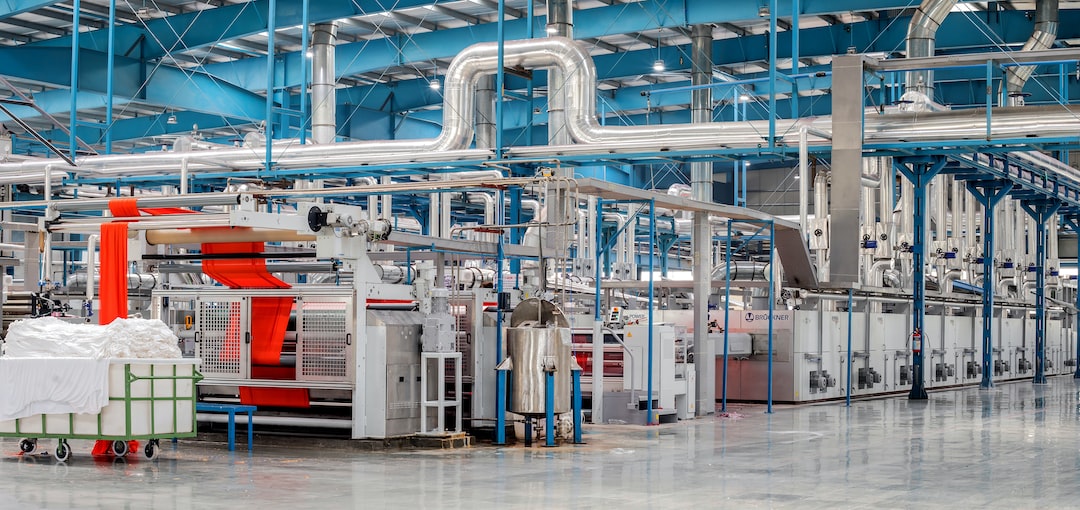Sustainable Manufacturing Practices for a Greener Future
In recent years, there has been a growing emphasis on sustainability and the need for businesses to adopt greener practices. Sustainable manufacturing, specifically, refers to the processes and systems implemented by companies to reduce their environmental impact while still producing high-quality goods. This proactive approach not only benefits the planet but also allows businesses to gain a competitive edge in an increasingly eco-conscious market. Let’s explore some sustainable manufacturing practices that can pave the way towards a greener future.
1. Energy efficiency: One of the primary focuses of sustainable manufacturing is reducing energy consumption. Manufacturers can achieve this by investing in energy-efficient machinery and equipment. Industry leaders are increasingly adopting automation technologies that optimize energy usage, resulting in reduced power consumption during production processes. Additionally, implementing energy management systems and encouraging employees to adopt energy-saving habits can bring about substantial energy savings.
2. Waste management and recycling: Waste is a significant concern for manufacturers, as it not only contributes to environmental degradation but also incurs costs. Minimizing waste through a comprehensive waste management plan is crucial. Manufacturers can implement strategies such as lean manufacturing, which aims to eliminate waste at every stage of production. Recycling should also be a key component of waste management, where materials like paper, plastic, and metals are recycled instead of being disposed of in landfills.
3. Water conservation: Another critical aspect of sustainable manufacturing is water conservation. Manufacturers typically consume large amounts of water in their production processes, which can strain local water sources and contribute to water scarcity. Implementing water-saving technologies, such as low-flow fixtures and intelligent monitoring systems, can greatly reduce water usage. Additionally, reusing and recycling water whenever possible can further minimize water consumption and environmental impact.
4. Sustainable materials: The choice of materials used in manufacturing plays a significant role in overall sustainability. Companies should aim to source materials that are renewable, recyclable, and non-toxic. This includes using certified sustainable timber, eco-friendly textiles, and non-toxic paints and coatings. By opting for sustainable materials, manufacturers can reduce their ecological footprint and contribute to a circular economy.
5. Supply chain optimization: Sustainable manufacturing is not limited to a company’s internal operations but extends to its entire supply chain. It is crucial to collaborate with suppliers who share the same commitment to sustainability. Implementing responsible sourcing practices ensures that raw materials are obtained from environmentally conscious suppliers who adhere to ethical labor standards. By optimizing the supply chain, manufacturers can minimize transportation and logistics-related emissions, reducing their overall carbon footprint.
6. Product lifecycle management: Sustainable manufacturing practices extend beyond the production stage and encompass the entire lifecycle of a product. Companies should focus on designing products that are durable, repairable, and recyclable. This entails investing in research and development to create products that consume fewer resources, emit fewer greenhouse gases, and have a longer lifespan. Disposal considerations should also be made, ensuring that products can be safely reused or recycled at the end of their lifecycle.
7. Stakeholder engagement and transparency: Transparency and accountability are essential aspects of sustainable manufacturing practices. Companies should engage with stakeholders including employees, customers, and the local community to educate and raise awareness about their sustainability efforts. Regular reporting on sustainability metrics and environmental impact demonstrates a commitment to transparency and provides an opportunity to showcase success and identify areas for improvement.
In conclusion, sustainable manufacturing practices empower businesses to reduce their environmental impact while maintaining profitability. By focusing on energy efficiency, waste management, water conservation, sustainable materials, supply chain optimization, product lifecycle management, and stakeholder engagement, companies can work towards a greener future. Embracing sustainability not only benefits the planet but also helps companies stay ahead in an increasingly eco-conscious market. By adopting these practices, manufacturers can contribute to a more sustainable and greener future for generations to come.


